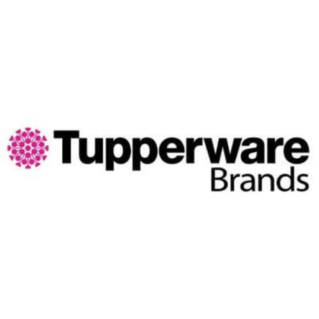When the WFDSA numbers came out in June, it showed that 46 percent of the global revenue for direct selling came from Asia/Pacific (32% North America, 21% Europe) with China its largest market making up the bulk of that number (nearly 40%).
In our July feature titled The China Conundrum, we discussed the possible impact China’s 100-day review of the health market would have on direct selling companies past the first quarter of 2019. With Q2 revenue numbers out for three companies it seems the 100-day action continues to negatively impact on these three U.S. direct sellers. This is also inopportune news—albeit temporary— for many nutrition-based direct selling companies looking to China for future growth opportunities.
Although optimism was high at the end of the first quarter that business would return to normal following the review period that ended in April, sales in China have decreased dramatically in the second quarter, resulting in Herbalife Nutrition, Nu Skin and USANA resetting expectations for the second half of 2019.
The inability to regain momentum, as well as the negative media attacks on the direct selling channel, pose serious challenges for these three U.S. global direct sellers in particular: China represents 20 percent of Herbalife’s global business, one-third of Nu Skin’s and one-half of USANA’s. Executives are looking for ways to recapture growth, although industry analysts suggest that a return to normal business activities may take more time than previously anticipated.
Herbalife Nutrition
Herbalife has been cautious in its financial outlook since the end of last year when high-profile incidents in China involving direct selling companies led to public outcry and in January, a government initiated 100-day review of the health market.
“Herbalife was the first company to flag the 100-day review period as an issue when they reported fourth-quarter results back in February,” said securities analyst Douglas Lane of Lane Research. “Then when they reported first quarter results, they were quick to point out that it was going to take a while to reaccelerate.”
…following the review period that ended in April, sales in China have decreased dramatically in the second quarter, resulting in Herbalife Nutrition, Nu Skin and USANA resetting expectations for the second half of 2019.
For the second quarter, Herbalife reported net sales in China of $187 million, a decrease of 34.8 percent from the second quarter in 2018. In the first quarter, net sales were down 25 percent.
In the company’s August 1 investor call, Alex Amezquita, Herbalife Nutrition’s Senior Vice President of Finance, Strategy and Investor Relations, said the 100-day action’s impact on business stemmed from the inability to hold standard business meetings and “that nutrition club operators faced increased scrutiny that created an overall hesitation in their activities.”
Michael Johnson, Herbalife’s chairman and CEO, stated that executives recognize China is an issue and they have a plan in place to stimulate the Chinese market.
“First, we expanded our e-commerce platform late in the second quarter to give our China retail customers the ability to purchase products directly from the company,” said Johnson. “This is the first stage of a larger project we are working in partnership with $0.10. The full platform is expected to launch in the fourth quarter of this year.
“Second, we have improved the economics for our service providers with a focus on enhancing the profitability and activities of Nutrition Clubs,” continued Johnson. “And third, we are executing on our China Growth and Impact Investment Program with exciting branding opportunities, including our official nutrition sponsorship of the International Champions Cup.”
Although Herbalife started to see improvement toward the end of the second quarter and expects to see continued improvement in the back half of the year, it revised its full-year 2019 volume point guidance to a range of 0.5%–5.0% growth, net sales guidance to a range of (1.7%)–2.8%, as well as reported and adjusted diluted EPS guidance to a range of $2.11–$2.51 and $2.40–$2.80, respectively.
Nu Skin Enterprises
Nu Skin has had more of a rollercoaster ride during the first half of the year. When the red flag was raised that the 100-day action would negatively impact U.S. direct sellers, particularly those selling nutritional products, analysts anticipated seeing weaknesses in Nu Skin’s first-quarter numbers. Yet the company had a stellar performance, with 12 percent growth in Mainland China, which it attributed to a focus on personal care products.
Second quarter results were quite different. Mainland China sales totaled $185 million, down 24 percent from $245 million in the second quarter of 2018.
Ritch Wood, Nu Skin’s chief executive officer, stated that “second-quarter results were negatively impacted by limited sales meetings, media scrutiny and consumer sentiment in Mainland China in connection with the recently completed 100-day review of the nutrition and direct sales industries.”
While Wood said executives remain committed to their long-term growth strategy and are confident that they are moving in the right direction, the company adjusted guidance for the year primarily due to a reduced revenue outlook in Mainland China.
“The clear theme is that this is going to take a while,” said Lane. “I get the sense from the conference calls and narratives that these companies are starting to head in the right direction.” – Douglas Lane, Securities Analyst, Lane Research
“Consistent with the guidance provided on July 16, we anticipate annual revenue in the $2.48 to $2.52 billion range, with an approximate 3 to 4 percent unfavorable foreign currency impact, and earnings per share of $3.20 to $3.35,” said Mark Lawrence, chief financial officer. “For the third quarter, we project revenue of $595 to $615 million, with an approximate 2 percent negative foreign currency impact, and earnings per share of $0.74 to $0.81.”
USANA Health Sciences
In the first quarter of 2019, USANA saw net sales in Greater China decrease 8.7 percent. Executives expected to see a more typical consumer environment in China during the second quarter and anticipated that planned promotional activity would generate incremental sales and customer growth in the region.
However, the market did not rebound as expected. USANA’s second quarter results saw an even greater drop: sales decreased 23.2 percent to $129 million from $168 million in the second quarter of 2018.
“The continuing challenging market environment in China was the major factor that impacted our second quarter results,” said Kevin Guest, USANA’s chief executive officer. “During the second quarter, we offered promotions and incentives in China that have historically generated meaningful sales and customer growth. However, the contribution of these promotions was significantly lower than we anticipated, which we believe is due to the low consumer sentiment toward health products in China.”
Guest stated that the company believes it could take several months for consumer sentiment and momentum to improve in China, but that the company remains optimistic in the long-term growth potential in what is a very important market.
USANA plans to introduce new products and offer additional incentives and promotions to customers and Associates during the second half of the year. “For example, in China we will offer a product-focused promotion and a separate business incentive during the third quarter,” said Guest. “This will be followed by the introduction of new products at our China national meeting in Macau during the fourth quarter, where we will again offer product promotions.”
Due to the challenges in China, in July the company updated its fiscal year 2019 outlook, anticipating that full-year net sales will range between $1.02–$1.06 billion, compared with the previous guidance range of $1.21–$1.26 billion, and earnings per diluted share will range between $3.70–$4.10 per diluted share, compared with previous guidance range of $5.00–$5.35.
What’s Ahead
According to Lane, the geopolitical issues in China at the end of last year and the government’s 100-day action this past January caused the stocks in publicly traded direct sellers to react, especially those companies focusing on nutritional products. And although he has not heard of any fallout for Herbalife, Nu Skin or USANA, activity during the second quarter did not return to the normal course of fashion that was anticipated.
“The clear theme is that this is going to take a while,” said Lane. “I get the sense from the conference calls and narratives that these companies are starting to head in the right direction. We are looking for stabilization for the rest of this year and then we should see a resumption of growth in the early part of next year as the whole 100-day episode is further and further in the rear-view mirror.”


